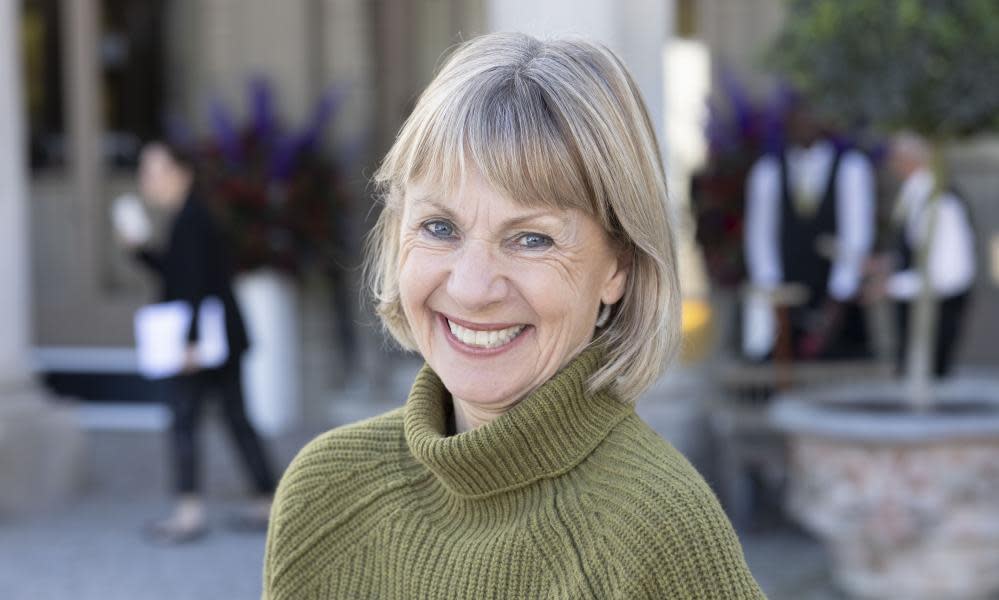Women’s prize to launch annual award for women’s non-fiction writing

The Women’s prize is to launch a non-fiction award to sit alongside its long-running fiction prize, in response to research that found that female non-fiction writers are less likely to be reviewed or win prizes than their male counterparts.
The new book prize, the Women’s prize for non-fiction, will be awarded annually and will be open to all female writers from across the globe who are published in the UK and writing in English. The winner will receive £30,000 and a statuette named “the Charlotte”, which have been given by the Charlotte Aitken Trust, a charity set up by the former literary agent Gillon Aitken on behalf of his late daughter.
Writer Kate Mosse, who is the founder director of the Women’s prize for fiction, said the prize was “not about taking the spotlight away from the brilliant male writers, it’s about adding the women in”.
She said she hoped it would “put everybody who is doing something extraordinary into the spotlight, and then readers can choose for themselves”.
There is, said Mosse, “this idea of a neutral voice, and that’s even more strong in non-fiction, the idea of ‘the expert’. But, actually, the expert, the default voice is male, whereas there’s a huge amount of amazing narrative non-fiction being written by women that is simply not getting any attention at all. It matters because readers are missing out.”
The Women’s Prize Trust aims to award the new prize for the first time in 2024, and is now searching for sponsorship.
Research carried out by the trust found that 26.5% of non-fiction reviews in national newspapers was allocated to books by female writers, while 35.5% of books awarded a non-fiction prize over the past 10 years were written by a female writer, across seven UK non-fiction prizes.
Prominent UK non-fiction prizes include the Baillie Gifford Prize, previously known as the Samuel Johnson Prize, which was won by Katherine Rundell in 2022 for her book Super-Infinite: The Transformations of John Donne. Since its founding in 1999, it has been won by twice as many men, 16, as women.
Other major non-fiction prizes include the Orwell prize for political writing, the Wolfson history prize, the James Cropper Wainwright prizes for nature writing and conservation writing, as well as the Costa biography award, which was scrapped alongside the other Costa book awards in 2022.
Mosse said the statistics around reviews and prizes had not surprised her, adding that it had been her “instinct that women were very poorly represented in fiction reviewing”. The research made “grim reading”, she added.
Related: ‘Can objects teach us about reality?’: Ruth Ozeki on her Women’s prize-winning novel
A number of factors have led to the launch of the non-fiction prize, said Mosse. Among them are the establishment of the Women’s Prize Trust as a charity in 2018, which involved looking at the trust’s ambitions, and a newspaper article of books the next prime minister should read, published in the summer of 2022, which didn’t include a single book by a woman and was a “trigger” for Mosse.
The new women’s non-fiction prize is being supported by authors including Kate Williams, Afua Hirsch, Anita Anand, Hallie Rubenhold and Mary Ann Sieghart, as well as the Charlotte Aitken Trust.
Rachel Cugnoni, a trustee of the Charlotte Aitken Trust, said that “fiction and non-fiction have always been different ways of telling a different kind of truth. But fact and fiction are very different things indeed and the quality of truth we get from reading very good non-fiction from trusted sources has never been more important,” she added.
The prize will include all narrative non-fiction, from history to memoir, music and nature writing to science, philosophy and biography. Like the Women’s prize for fiction, it will be decided by a panel of five judges.
The Women’s prize for fiction was launched in 1996, in response to a lack of women on the shortlists of major prizes. It was won in 2022 by Ruth Ozeki for The Book of Form and Emptiness.

 Yahoo Movies
Yahoo Movies 
